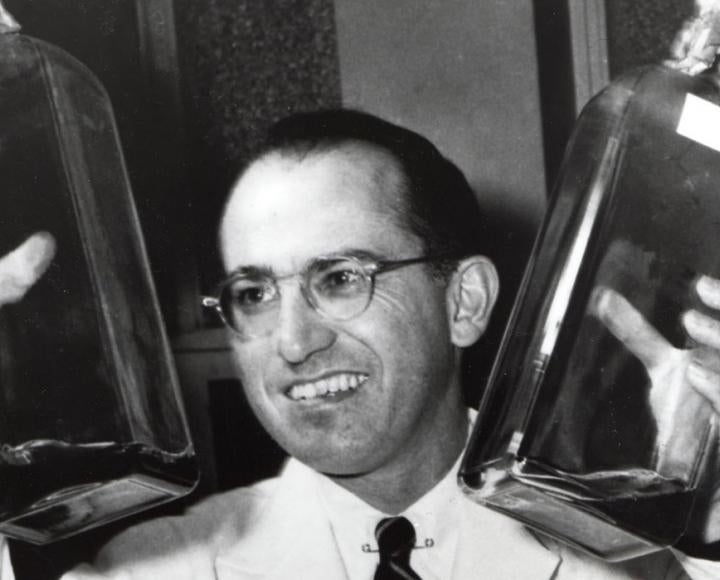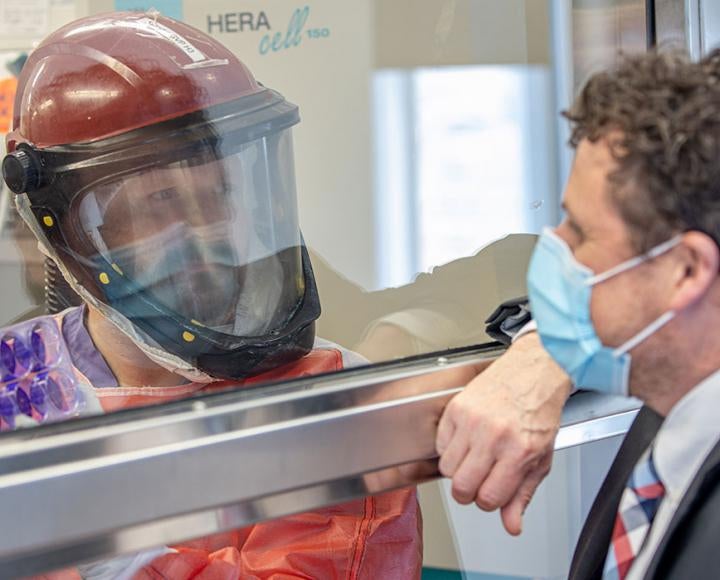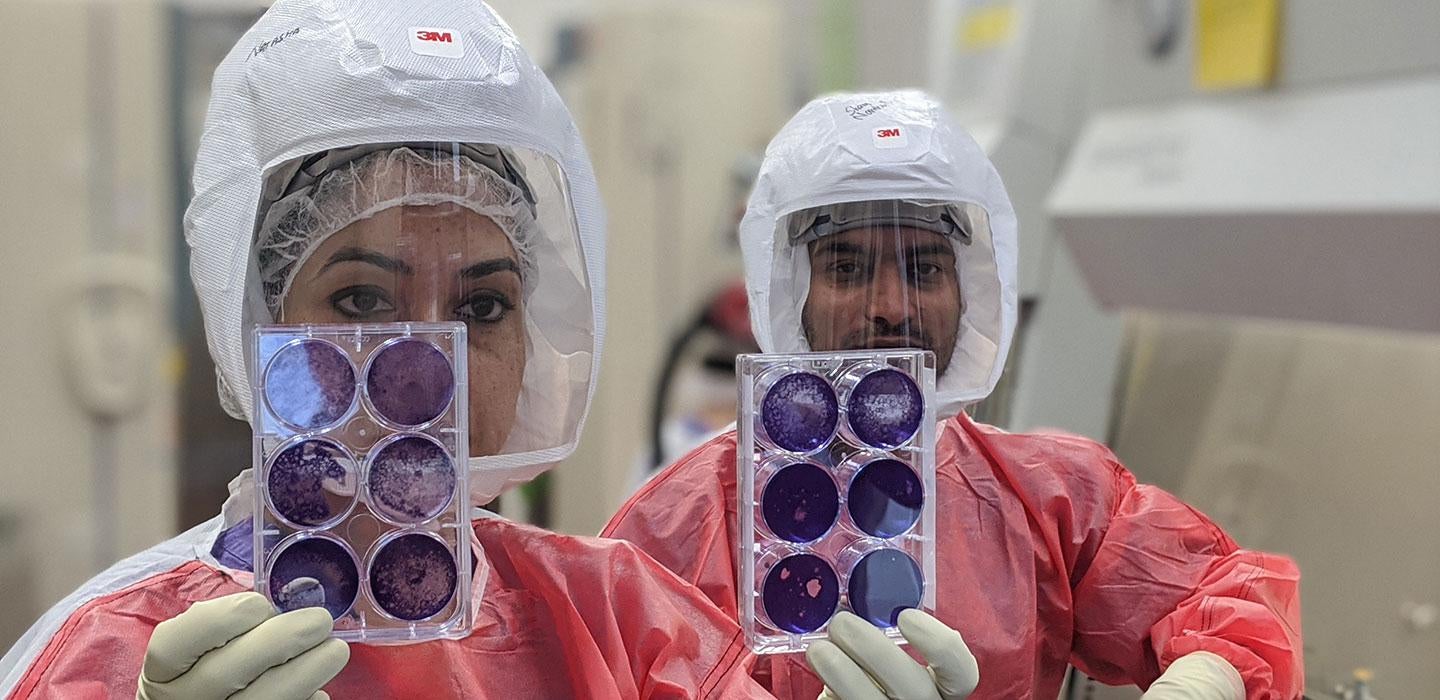
Subscribe to Pittwire Today
Get the most interesting and important stories from the University of Pittsburgh.Find the edge of what’s possible. Forge Ahead.
Pitt people beat polio, pioneered TV and heavier-than-air flight, and turned Pittsburgh into the world’s organ-transplantation capital, among other breakthroughs. Today’s Pitt researchers carry on that tradition in areas ranging from literary criticism to the quest for quantum computers.
» Research by Pitt’s Bernard Fisher has extended and improved the lives of many thousands of women suffering from breast cancer.
» Marlin Mickle, the Nickolas A. DeCecco Professor in Pitt's Department of Electrical and Computer Engineering, developed breakthrough innovations around radio frequency-based electronics. His innovations ranged from wireless ambient energy harvesting, burst switches, and tiny antennae to devices for deep-brain stimulation and safety packing for medication blister packs.
» Pitt professors Yuan Chang and Patrick Moore isolated the virus that causes epidemic cancer among HIV/AIDS patients.


» Rory Cooper, Distinguished Professor and chair of Pitt's Department of Rehabilitation Science and Technology, and his research team invent new ways to improve the quality of life for people with disabilities. Among his innovations are an injection-molded pediatric chair, a wheelchair sensor system, a natural-fit hand rim for wheelchair wheels, and a "game cycle" exercise device for those with disabilities.
» Pitt surgeons have performed more than 17,000 organ transplants, establishing Pittsburgh as the world’s transplantation capital.
» Pitt’s Klaus Hofmann isolated the protein receptor for insulin and determined how a peptide binds to a protein.
» Medicine professor Peter Safar developed CPR.
» Pitt’s School of Dental Medicine have created what is believed to be the world’s only DNA bank to share data among colleagues.
» Neurology professor Andrew Schwartz developed a robotic arm that can be controlled through thought.
» The first heavier-than-air powered aircraft to make a sustained flight was created by Pitt astronomer Samuel Langley.
» Pitt established the first critical care medicine department in a U.S. medical school.
» Research by Pitt’s Maud Menten laid the groundwork for modern drug therapy and biochemistry.
» Professors William Klunk of Pitt's Department of Psychiatry and Chester Mathis of the Department of Radiology received the American Academy of Neurology's Potamkin Prize (also known as the "Nobel Prize of neurology") for their pioneering work in the early diagnosis of Alzheimer's disease.
» A Pitt team led by professor P.G. Katsoyannis was the first to synthesize a protein—insulin.
» In 1932, Pitt chemistry professor Charles Glen King and his research team isolated and identified the chemical structure of vitamin C.
» Albert and Vera Donnenberg are on a quest to find, and eventually kill or manipulate, dormant cancer stem cells. Research by Albert, a professor of medicine, and Vera, an assistant professor of surgery and pharmaceutical sciences, has led to the identification and characterization of specific cancer stem cells as well as the development of new flow cytometry-based tools and techniques.
» Pitt researcher Reginald Fessenden, the “Father of Radio,” broadcast the first transmission across the Atlantic in 1906.
» Professor Thomas C. Hales proved Kepler’s Conjecture, one of the world’s great math problems, in 2005.
» In 1991, Pitt astronomer David Turnshek identified the most distant galaxy known.
» Research by Pitt physicist Ernest Sternglass lead to a light-sensitive TV camera tube that made it possible for the world to watch U.S. astronaut Neil Armstrong's first steps on the moon.


